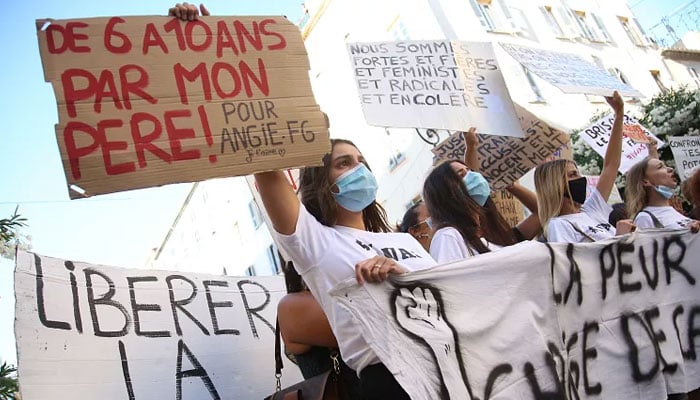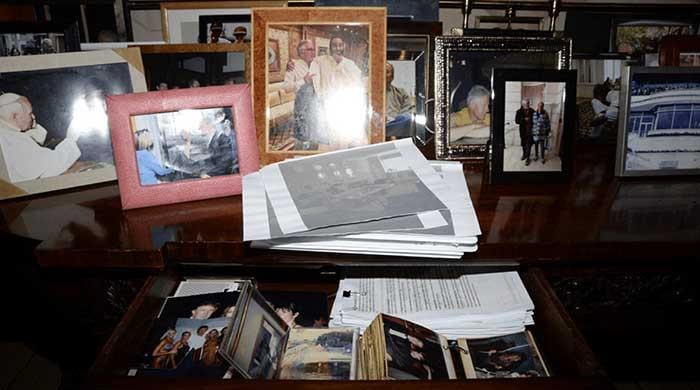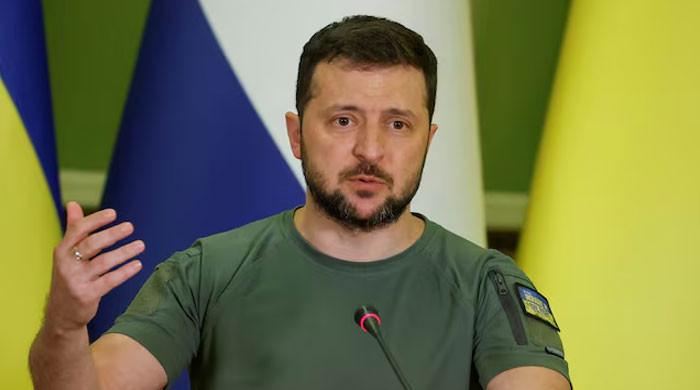France launches nationwide campaign against incest, child sexual abuse
A television campaign will also be aired during halftime of a France match at ongoing Rugby World Cup
September 12, 2023

The French government has initiated a comprehensive nationwide campaign aimed at raising awareness about sexual violence against children, with messages and videos distributed across social media platforms, and displayed on billboards, in various media outlets, and in movie theatres.
This marks the first time that the subject of incest, which has long been considered a taboo in public discourse, is being addressed in such a manner.
A television campaign will also be aired during the halftime of a France match at the ongoing Rugby World Cup.
Charlotte Caubel, the junior minister responsible for child issues, expressed her desire for a hard-hitting campaign similar to those aimed at preventing road fatalities, intending to have a profound impact on the public. She highlighted that it is the first time the government has included the term "incest" in a campaign and explicitly mentioned sexual violence within families.
The previous government campaign addressing sexual violence against children was conducted in 2002.
Estimates indicate that around 160,000 children fall victim to sexual abuse in France each year, with associations suggesting that one in every 10 adults in France has experienced incest. Caubel emphasised that people encounter individuals daily who have either been victims of incest or have perpetrated it.
The goal of the campaign is to ensure that "nobody will be able to say 'I didn't know'" by its conclusion, making it a collective effort.
In France, incest is legally defined as sexual relations between a person and their parent, child, grandparent, grandchild, sibling, or half-sibling and is legal as long as it occurs between consenting adults. However, in cases of rape or sexual abuse against a minor, courts often increase prison sentences if the assault was also incestuous.
While incest remains legal in many parts of the world, it is prohibited in the United Kingdom, most U.S. states, and Australia.
Recently, French documentary makers, writers, and actors have challenged the longstanding taboo around incest in France, where it has traditionally been considered a private family matter.
French actor Emmanuelle Beart, herself a victim of incest as a child, disclosed her experience in a forthcoming documentary titled "Such a Resounding Silence." The documentary features stories from four incest victims, including Beart's account, though she does not reveal the identity of her attacker.
In October, a television production called "Eyes Wide Shut" addressing incest will air on France's largest TV channel, TF1. Additionally, a movie titled "Consent," based on the book by publisher Vanessa Springora detailing her grooming by writer Gabriel Matzneff when she was 14, is set to be released in October.
A novel titled "Triste Tigre" ("Sad Tiger") by Neige Sinno, which recounts the author's childhood rape by her stepfather, was published this year and received acclaim, earning a prestigious literary prize from Le Monde newspaper.
Edouard Durand, a judge and co-president of the Ciivise association against child sexual violence, commended the government's campaign as "courageous" and lauded its commitment to acknowledging the suffering of children. He stressed the importance of the campaign in publicly recognising incest as a social issue, rather than a private matter.
The government has also pledged to increase funding for support organisations assisting abused children. In addition, the French parliament has commenced the examination of a draft law introduced by Socialist lawmaker Isabelle Santiago, which proposes the removal of parental authority from anyone found guilty of child abuse.









